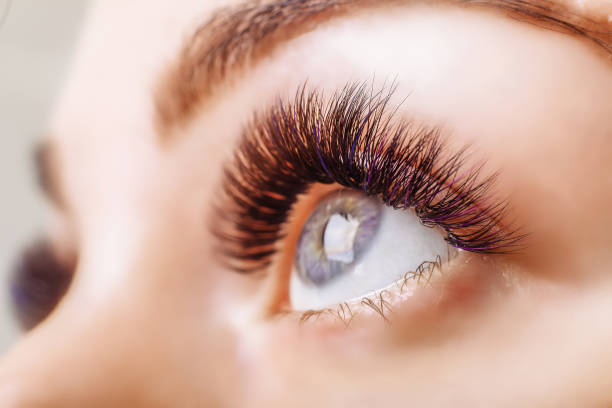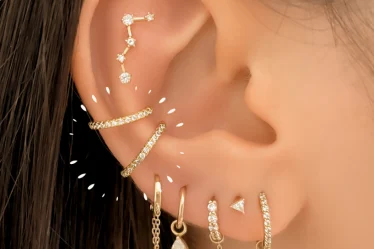
Your eyelashes are a beautiful curtain that frames your eyes. But did you know eyelashes evolved biologically to protect your eyes from dirt and prevent eye infections? Eyelashes, like all hairs on your body, have a reason. They grow back and are just like other hairs. If you think about it, our hair is different from when we were born. Therefore, it is normal for eyelashes to grow, fall out, then grow back. Although hair fall to your scalp is more common than you might think, it’s important not to panic about eyelash shedding. You can be confident that your eyelashes will grow back. Eyelash loss is not permanent. Learn more about eyelash loss, the time it takes to grow them back and tips for maintaining them.
In 4 phases, eyelashes grow back
Stress, underlying medical conditions, nutritional deficiencies and hormonal imbalances all can play a role in losing eyelashes. However, the primary reason for losing your lashes are the four phases of the natural hair-growth cycle. The hair-growth cycle has four phases.
- Anagen Phase. Anagen Phase. This phase is for eyelashes and lasts about 1-2 months.
- Catagen Phase. This is the transitional phase, also known as catagen, where your growth stops and your follicules shrink.
- Telogen Phase. Next is the telogen phase, which is also known as the resting phase. This is the most important phase of hair growth. It’s when your hair follicle has completed its formation and your hair is at rest.
- Exogen Phase. This is the final phase during which hairs are shed officially. The cycle starts all over again.
How long does it take to grow your eyelashes back?
The average adult is between 90-160 eyelashes and 75 to 80 eyelashes. One of your eyelashes may be going through a part of hair growth at any given moment.
How many eyelashes are you able to lose in a single day?
An average person will lose between 1 and 5 eyelashes per day. Eyelashes usually grow, lose their shape, and then regrow in 6-10 weeks.
What Causes Eyelashes to Fall Out?
Medical Reasons
Although it is possible that your eyelash fall is natural, there are other factors that could cause your eyelashes’ loss. Possible explanations include hormonal changes, overactive/underactive thyroid glands, alopecia, and so forth. These conditions can affect hair growth, eye brows and eyelashes. You should seek professional assistance if you have concerns about excessive shedding.
Bad Eyelash Habits
Poor beauty habits can often lead to thin eyelashes. If you want thick, lush lashes, it’s essential to follow a lash care regimen. Unknowingly, some of our bad habits can lead to a loss of eyelashes. These mistakes should be avoided from becoming a daily habit to have beautiful lashes.
Nighttime eyelash routine
Avoid wearing heavy, waterproof makeup while you sleep to reduce the chance of developing bacterial eye infections. Make a habit of washing your face after applying makeup to prevent eyelash fall. Remind yourself to always wash your face after touching your eyes and not share your eye makeup with anyone else. It is easy to spread bacteria quickly by sharing eye makeup. You should immediately throw out any makeup products that are irritating your eyes. You should immediately throw out any eye makeup, especially mascara, that you have used before you get an infection.
Eyelash Curling
Avoid using too much pressure when curling your eyelashes. If you use too much force, over-crimping can cause your lashes to fall out. Use an eye curler that has a plush band to curl your lashes. Only do this when your hair is dry.
Eyelash Extensions
Bad eyelash health can also be caused by eyelash extensions. You can reduce and prevent eyelash damage if you do it correctly (through a professional). If you are attempting to do a DIY lash treatment at your home, be careful. If done wrongly, glue can cause damage to your eyelashes and even cause them to fall off. Some glues can cause allergic reactions in people with sensitive skin. Professional eye extensions should be cleaned every night. Avoid rubbing your eyes.



